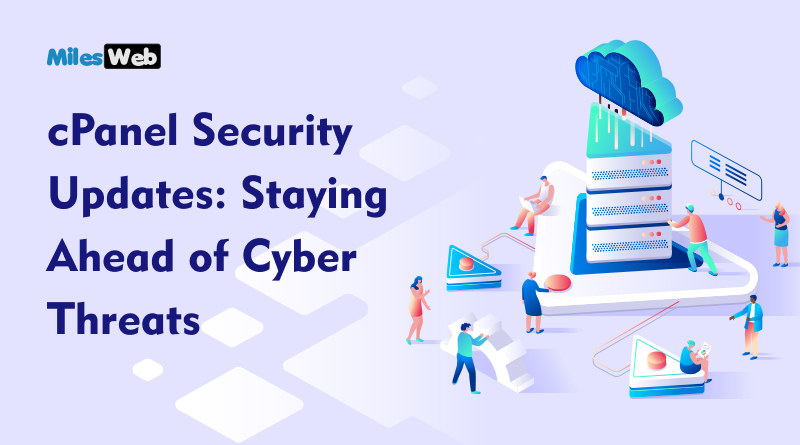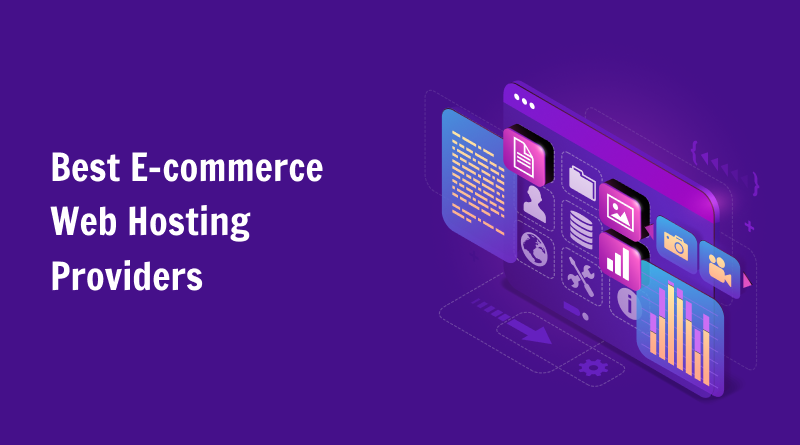cPanel Security Updates: Staying Ahead of Cyber Threats
In 1996, cPanel’s introduction simplified the Linux web hosting management. It’s been more than 25 years since the cPanel has come up with different features and resources. One thing that remains unchanged is the data security vulnerabilities. It is essential to have a proper security layer and updates to stay ahead of cyber threats.
Over the years, cPanel has gone through several version updates and complex security layers. Many of the security measures are implemented by the cPanel web hosting services providers. So, if you want to minimize the data security risk in the cPanel, we have provided the best practices to avoid becoming the victim of cyberattacks.
How Do I Protect My cPanel?
Secure SSH
SSH (Secure Shell) is a network protocol that connects servers and performs uploads and exits. Over an unsecured network, SSH provides access to commands and operating systems for remote users. SSH access is not uncommon among administrators, but not all users in your organization should have it. To improve security, you can sometimes turn off SSH completely.
Create SSH keys using WebHost Manager (WHM) for the root user and disable password authentication for SSH in the WHM Password Authorization Tweak interface. It helps in enhancing the server’s and control panel’s security. Additionally, choosing the best WordPress hosting provider can significantly contribute to your website’s security. A reputable WordPress hosting service should offer features such as regular security updates, malware scanning, firewalls, and DDoS protection. Moreover, opt for a hosting provider that offers SSL certificates, daily backups, and robust server monitoring to safeguard your website from potential cyber threats effectively.
Secure Apache
Apache is an open-source web server application that can be managed through cPanel. It has been the favorite option of web hosting account users since 1999. But like any other server software, Apache should be updated and patched as new versions are released. Install features like EasyApache and other hardening standards to reduce the risk of compromise on cPanel.
One bonus tip that could help you is to disable directory listing so that attackers cannot see the list of files stored in every folder. Or else, attackers discover unknown publicly accessible files. If you want to disable the directory listing, change the following line in the CLI (Command Line Interface) /etc/httpd/conf/httpd.conf file
Options Indexes FollowSymLinks >> Options FollowSymLinks
Once done, restart your Apache.
Harden Your Operating System
The operating system is the heart of your web hosting account. Hence, it should be configured to withstand any cyberattack. We understand that there is no perfect operating system that creates the perfect security system. But still, you must add multiple layers of security to reduce the compromise risk of data security. Hence, install malware, antivirus, and 2FA (Two Factor Authentication) to reduce the cybersecurity risk on the control panel. You can avoid a critical cybersecurity incident using a few operating system best practices for your server.
Harden The TMP Partition
Tmp directory is used when an application is installed or needs to store temporary files. The directory is used by some applications to create lock files for temporary storage. After a reboot, this directory is deleted, as it contains system files that can be used by the system. Tmp can be used to store malicious files if an attacker compromises the server and runs an application. Attackers are prevented from storing or executing files in the tmp folder when it is locked down. Several methods can be used to harden security for this folder in the Linux operating system.
Restrict System Compilers
There are pre-configured system compilers installed in the control panel. It is a computer program that translates the computer code into binaries. Cyber attackers always look for these compilers to compile their scripts and try to upload their malicious code and run it on the server. Novice users may find it as an antivirus or the new software, but it is a red flag! Stay alert with these auto-installed software and applications.
Remember that a web hosting server does not need compilers unless the applications are unique and rare. For better security, compilers should be removed or restricted. If you can’t remove the compilers altogether, you should restrict access to the root user only.
Monitor the System Continuously
Monitoring the control panel continuously is mostly done by the managed web hosting service providers. They have a certified team of experts who look after the web server. If anything goes wrong, it may cause the downtime for users. Monitoring control panel resources includes several components of the system including user activity, application activity, performance, and network connectivity.
It’s the administrator’s responsibility to review monitoring reports, but a good tool should alert administrators when anomalies are detected.
Final Line
A web server is a crucial component not just for the web hosting company but for their clients also. Hence, cPanel is available with most web hosting plans to allow hosting account users to manage their domains, servers, and accounts. cPanel must be updated regularly to keep away all kinds of cyber threats and issues.
MilesWeb offers reliable and secured cPanel hosting services with a pre-configured control panel. Also, they have 24×7 customer support with all sets of knowledge base articles and guides. The certified team of experts is always available to assist customers.
The web host implements 360 degree monitoring, provides a free SSL certificate, and install many security plugins to safeguard your website with the latest technology. If you are searching for a trustworthy cPanel host, MilesWeb is your answer!
Best E-commerce Web Hosting Providers
Your online store is powered by a company called an e-commerce host. Choosing the right e-commerce hosting provider can affect your online store’s experience. Your hosting provider manages everything from page loading speeds to the security of the credit card information they submit.
The best ecommerce hosting provider depends on your needs. A shopper’s experience on a website determines the success of an e-commerce purchase. Your host has a huge responsibility.
So, how do you choose the best e-commerce hosting provider? This guide shares the answers.
Top eCommerce Hosting Companies
Here are the top eCommerce hosting picks that will add value to the online presence.
1. MilesWeb
MilesWeb is highly-preferred eCommerce hosting company that caters to over 50,000 clients. The web host has the best-in-class IT infrastructure consisting of SSD NVMe storage, unmetered bandwidth, high-speed connectivity, and free SSL. There is no security or website backup related concern because MilesWeb gives their customers the top priority.
Website owners get the 24×7 customer support and regular backups from MilesWeb. As a result, they easily focus on their businesses rather than server management. The best web hosting UAE company gives the assured 99.95% uptime with a global network of data centers. Prices are affordable which is beneficiary to beginners having a limited budget.
Additionally, MilesWeb offers cheap WordPress hosting solutions, making it an ideal choice for those looking to host WordPress websites at a budget-friendly price.
Cost: Plans start at $1 per month.
2. IONOS
IONOS incorporates affordable eCommerce hosting plans emphasizing on speed and performance. They deploy dual platform technology for the website’s scalability and higher performance. As a result, their servers can handle traffic spikes. The problem arises when you look for core eCommerce hosting services in IONOS. They have separate WooCommerce hosting and Magento hosting services which MilesWeb also offers.
The cost range is higher and only limited plans are available. So, what if you need to upgrade your server features or storage? Instead of IONOS, MilesWeb is helpful because they have more plans to scale the website exponentially. IONOS features fast SSD storage and an integrated caching plugin for faster loading and fewer abandoned carts. So, the performance part is fine!
Cost: Plans start at ₹828.90 per month.
3. Bluehost
Bluehost is an eCommerce hosting company that many businesses prefer. It provides different features like the YITH plugin (used only on WooCommerce) and a user-friendly dashboard that allows you to sync your calendar with your e-store.
Bluehost and MilesWeb both offer pre-configured plugins and themes installed in their eCommerce hosting plans. Customer support is also offered by both web hosting service providers. But the major difference is the price gap which needs to be filled. Even the hardware specs cause the performance limitations due to which it came 3rd in our listing.
Cost: Plans start at ₹599 per month.
4. HostGator
HostGator is a US-based eCommerce hosting service provider that uses good-quality IT infrastructure to host online stores. As per their claim, more than two million websites use its hosting packages. However for online stores, their basic shared hosting plans may not deliver the expected ROI. It is because of their limited hardware specs.
Much like any other self-hosting package, expect your monthly fee to change as your e-commerce business grows. Also, be aware that introductory deals are often much lower than full price. Prepare for costly renewal fees once your deal term expires. They have different Magento hosting plans that include the shared hosting infrastructure.
Cost: Plans start at ₹79 per month.
5. SiteGround
SiteGround’s eCommerce hosting plans include Content Discovery Networks (CDNs), like Cloudflare, improve site speed and make your visitors happy. Moreover, they have multiple data center locations on three continents only. In comparison to MilesWeb, SiteGround has a limited data center location that may hamper the website’s performance.
The unmetered bandwidth and other set of hardware specs are helpful in maximizing the online presence and boosting the performance of websites/applications. Overall, we ranked it #5 because of their expensive plans and we did not find any suitable features that will help any online business store user. Even their eCommerce hosting plans support WooCommerce only.
Cost: Plans start at ₹247.93 per month.
Conclusion
Throughout this exploration, you’ve encountered diverse options, each boasting unique strengths. While the “best” provider ultimately depends on your specific needs and budget, remember, it’s not just about features and price tags. You deserve a partner who understands your aspirations and walks alongside you on your entrepreneurial journey. MilesWeb steps forward as more than just a hosting provider. We’re a passionate team dedicated to empowering online businesses, big and small. We offer:
- Unbeatable E-commerce Solutions: Optimized plans tailored for popular platforms like WooCommerce and PrestaShop, ensuring seamless integration and peak performance.
- Security You Can Trust: Industry-leading security measures safeguard your store and customer data, giving you peace of mind.
- 24/7 Expert Support: Our friendly and knowledgeable support team is always available to answer your questions and guide you every step of the way.


